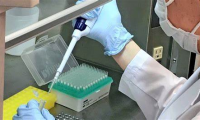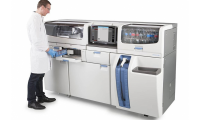-
Innovate UK grants funds for breast cancer therapy project
- Source: https://www.pharmaceutical-technology.com/news/innovate-uk-funds-breast-cancer/?cf-view
- 103
- February 14, 2024
-
Why One Google Cloud Exec Thinks HHS’ New Cybersecurity Guidelines Are A Step In The Right Direction
- Source: https://medcitynews.com/2024/02/google-cloud-hhs-cybersecurity/
- 102
- February 13, 2024
-
MHRA agrees licence change for Pfizer-BioNTech’s Comirnaty vaccine
- Source: https://www.pharmaceutical-technology.com/news/mhra-licence-pfizer-biontech-vaccine/?cf-view
- 97
- February 13, 2024
-
AstraZeneca posts 81% rise in FY 2023 profit after tax
- Source: https://www.pharmaceutical-technology.com/news/astrazeneca-fy-2023-profit-after-tax/?cf-view
- 169
- February 12, 2024
-
Study reveals SARS-CoV-2 can infect dopamine neurons causing senescence
- Source: https://news.weill.cornell.edu/news/2024/01/sars-cov-2-can-infect-dopamine-neurons-causing-senescence
- 166
- February 12, 2024
-
Multiplexed PCR Test for Pathogen Detection and Antibiotic Resistance Helps Deliver Rapid UTI Treatment
- Source: drugdu
- 66
- February 10, 2024
-
Stalicla secures funds for late-stage assets amid CNS buzz
- Source: drugdu
- 99
- February 8, 2024
-
Non-Endoscopic Capsule Sponge Device Helps Detect Esophageal Cancer
- Source: drugdu
- 85
- February 8, 2024
-
AnaMar secures double orphan drug designation for systemic sclerosis drug
- Source: drugdu
- 98
- February 8, 2024
-
Automated Mass Spectrometry-Based Clinical Analyzer Could Transform Lab Testing
- Source: drugdu
- 115
- February 7, 2024
your submission has already been received.
OK
Subscribe
Please enter a valid Email address!
Submit
The most relevant industry news & insight will be sent to you every two weeks.













